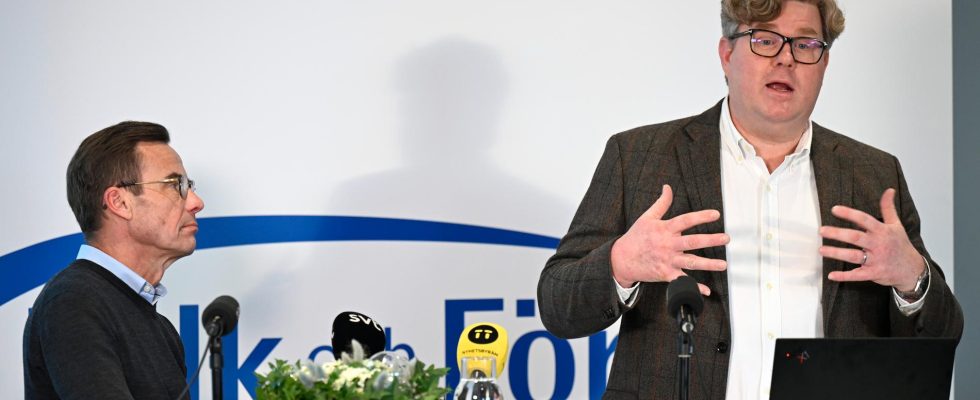unsaveSave
share-arrowShare
expand-left
full screen Prime Minister Ulf Kristersson (M) and Minister of Justice Gunnar Strömmer (M) at the People and Defense National Conference in Sälen. Photo: Pontus Lundahl/TT
The government presents a new joint strategy against extremism and terror. A new focus is that society must be able to interrupt an ongoing attack.
Sweden previously had two separate strategies against terrorism and violent extremism. Now they are merged and updated into a unified strategy.
Unlike the previous ones, the new strategy highlights the ability to handle if a crime occurs.
– Intervene against and interrupt ongoing attacks, limit crime and the consequences for society, but also at a later stage ensure that crime victims receive the right support, says Minister of Justice Gunnar Strömmer (M).
Security companies and shops
When the previous anti-terror strategy was drawn up in 2015, Sweden had not been involved in a terrorist attack with several dead and injured. But in 2017 there was the attack on Drottninggatan, and last autumn the crime against Swedes in Brussels.
Police, emergency services and healthcare must, among other things, carry out joint training and train personnel.
– Different units must train together to get a better preparedness. It also includes other important actors who must be offered to participate in this, such as store staff and security companies, says Strömmer.
The strategy also focuses on preventing, preventing and protecting.
It can be about things like reducing the risk of children and young people being radicalised, detecting individuals with the intention and ability to commit crimes, effective immigration control, stopping the financing of terrorism, reducing access to weapons and introducing physical barriers and camera surveillance in crowded public places.
Not dissatisfied
In each area there are a number of objectives, which in turn have a number of concrete measures that must be taken and followed up, according to Strömmer.
The strategy must not become a “paper tiger”, according to the government, which therefore assigns Säpo, the police, MSB and the Center against violent extremism (CVE) to incorporate the strategy into their activities.
Are you dissatisfied with how the authorities have handled terrorist acts in the past?
– No, it is not based on dissatisfaction. Instead, it’s about explicitly pointing out handling as an essential part, that is, underlining that we as a society must prepare for it as methodically as the other parts, says Strömmer.
